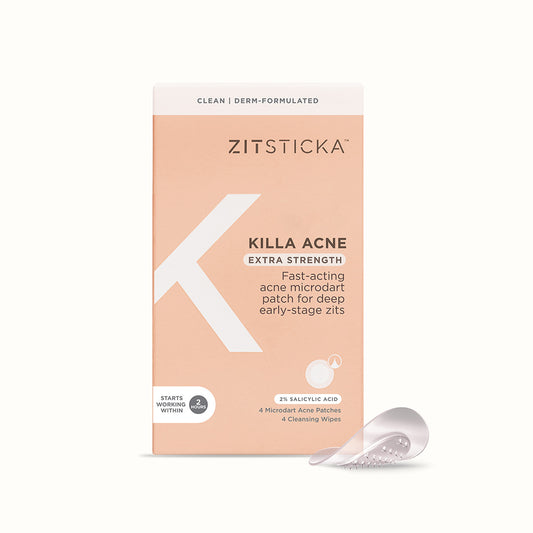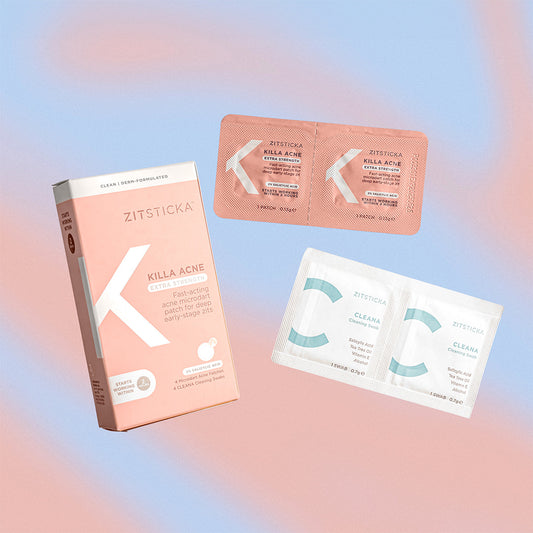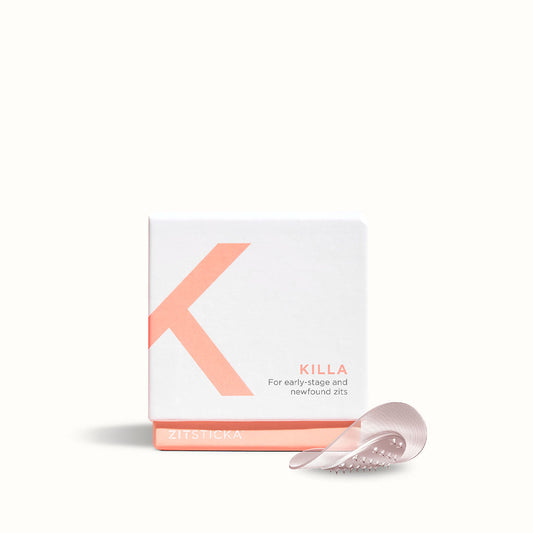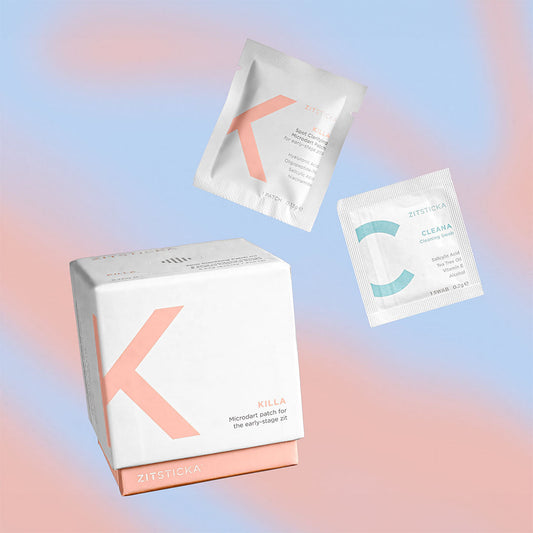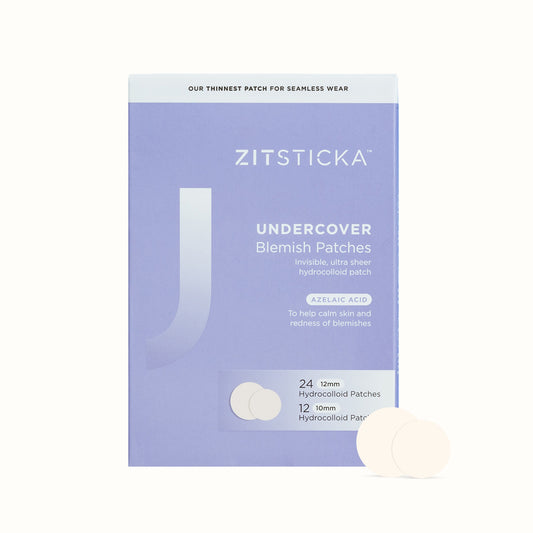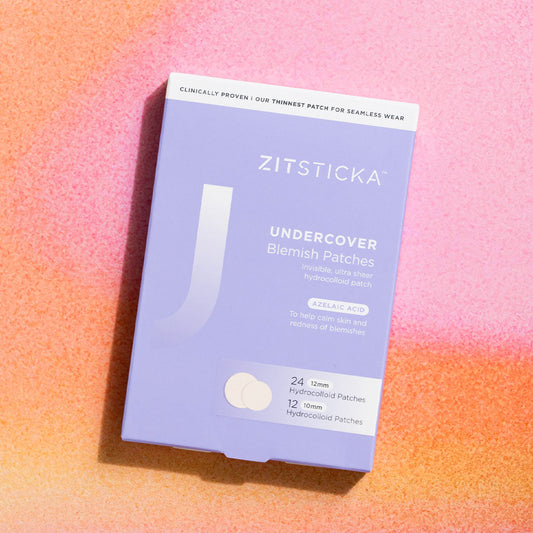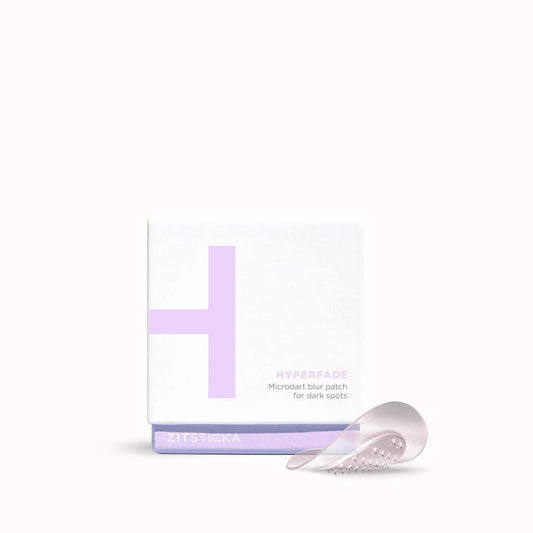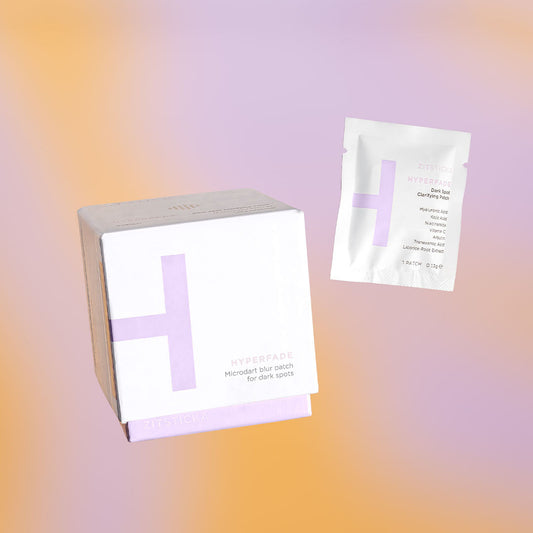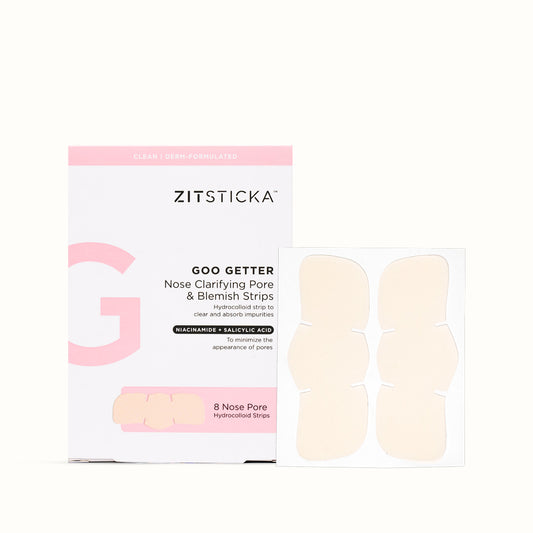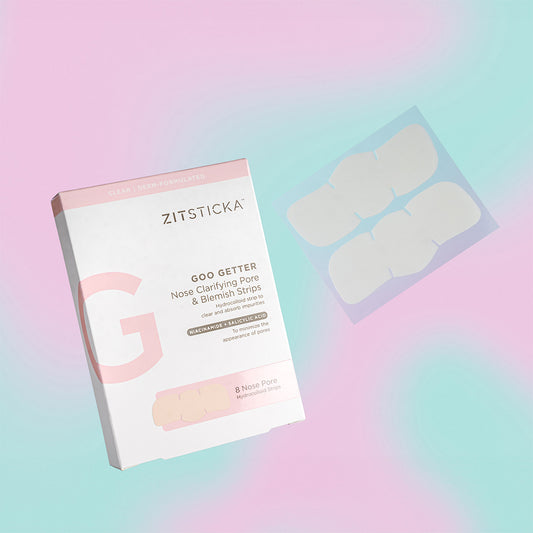As with friendships, it’s important to have lasting and high-quality ingredients in your corner for when s#%t hits the fan. In life, that might take the form of a breakup or job loss; for your skin, that might be a breakout or a loss of collagen.
When it comes to the amount of skincare products promising to Change Your Skin!, Change! Your Life!, the limit does not exist. Instead of smearing endless amounts of products on your face at an increasingly dizzying pace, might we suggest a better option? Multi-tasking ingredients.
For those with acne-prone skin, two of the biggest heavyweights to reach for are retinol and niacinamide. Not sure which one is right for you? We got you covered below…
Retinol
What is it: Before we delve into retinol, let’s first work through the difference between retinol and retinoids. Retinoids are a Vitamin A derivative that help with both comedonal zits (including whiteheads and blackheads) and in stimulating collagen production. Retinol is the least active and therefore gentlest form of retinoids, and the only version that you’ll find stocked on the IRL and virtual shelves of your fave skin care shop. (Other types require a prescription).
There’s a reason retinol is as hyped as, oh, fresh running water. Let’s lead with a real life example. If you were to pop a pimple against your better judgement (oops), the ensuing scab is going to require a lot of TLC to prevent any residual dark spots. And, there’s no better shoulder to cry on than retinol.
Cool. How? The lifeline of beauty ingredients accelerates cell turnover, replacing dead skin cells with new ones, and smoothing out any textural imbalances aforementioned picking may have caused. It’s also for this reason that it helps prevent wrinkles from forming.
Who is it benefiting? Those prone to breakouts, or who want to reduce the appearance of wrinkles and fine lines. Also, a great choice for anyone in their mid-to-late twenties interested in a preventative routine.
Niacinamide
What is it? Niacinamide, also called nicotinamide, is a form of vitamin B-3. Vitamins from this group are well-known for their soothing and healing properties and there’s not much this little miracle ingredient can’t do.
The beauty industry is a seedbed of grandiose declarations. If each of the ‘life-altering’ claims tossed at us actually came true, our lives would be in a constant and exhausting state of flux. Growing up with the internet has made us a discerning bunch; our radars honed to slice through swathes of BS online. Niacinamide, however, is one ingredient truly deserving of the hype. From boosting hydration to fading post-zit dark spots, Niacinamide benefits our flesh suits in so many ways, it’s hard to know where to start with the praise. Multitasking in humans is a myth, but certainly not in products, as Niacinamide proves.
Cool. How? Niacinamide contains powerful antioxidant properties. It’s also a real chatty Cathy when it comes to communicating with your cells—it can ‘talk’ to all kinds of cells in the skin, telling them to make better, healthier and younger acting cells. That’s not all, folks. Niacinamide also helps to generate other VIP substances in the skin, and there is evidence that suggests Niacinamide (or Vitamin B3) even regulates the production of sebum. Wow!
Who’s it benefiting? For all its multitasking abilities, Niacinamide doesn’t discriminate. Everyone can benefit from using it. Especially those looking to reduce the appearance of scars and hyperpigmentation, or who have acne-prone, oily or combination skin. Oh, and if you’ve caved to the allure of popping a zit and are now dealing with the angry aftermath, this is 100% the ingredient 4U. Both KILLA and HYPERFADE patches flood the skin with niacinamide to calm acne-caused irritation, repair signs of damage and improve the appearance of uneven skin tone.
Why Not Both?
In 'Humankind: A Hopeful History', Dutch historian and author Rutger Bregman all but restores our faith in others, arguing that “most people, deep down, are pretty decent.” Humans are at their core friendly, he proffers. Furthermore, despite being intellectually inferior, homo sapiens were able to out-survive Neanderthals because “humans were better able to cope with the last ice age because we’d developed the ability to work together.” Why are we telling you this? Well, outside of gently encouraging you to leaf through the book as well, the same logic can be applied to these wonder ingredients. Much like humans, niacinamide and retinol do their best work when they rally together. Niacinamide can help reduce the irritation experienced with retinol use and can also enhance its therapeutic effects.
Niacinamide and retinol can be used together with a five-minute gap between application (but can be just as effective if you use them at separate times of the day.)
Now you know about retinol and niacinamide, here are three other active powerhouses...

